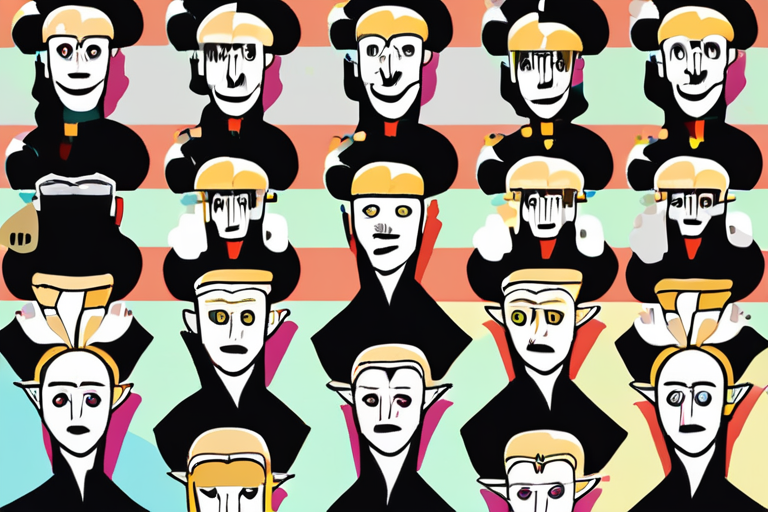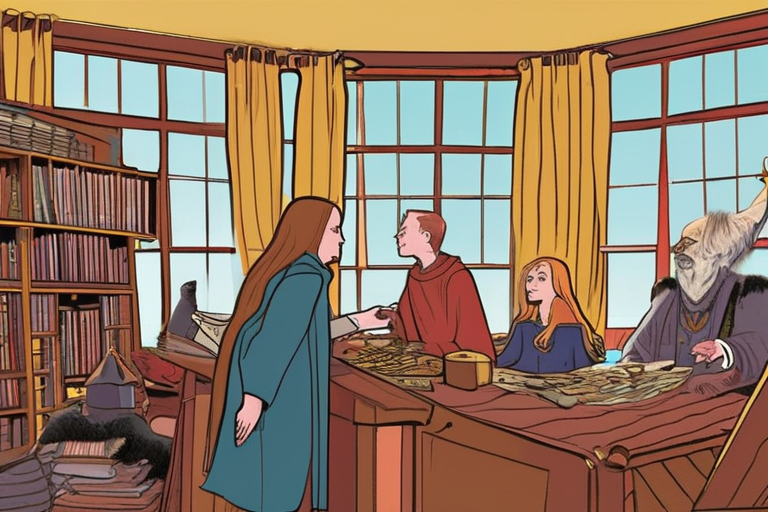The Wizard's Dilemma: How to Enjoy Harry Potter While Disarming J.K. Rowling
As I stepped into the crowded movie theater, the familiar theme music of the Harry Potter franchise filled my ears, transporting me back to a world of magic and wonder. But amidst the excitement, a nagging question echoed in my mind: how can I, as a fan of the beloved series, reconcile my love for it with J.K. Rowling's problematic views on transphobia? For many fans like me, this conundrum has become an increasingly pressing concern.
Meet Emily and Alex, a same-sex couple who have been grappling with this very issue in their relationship. "We both agree that JK Rowling's transphobia is unacceptable," Emily told me during our conversation. "But for me, the Harry Potter world sends a positive message about acceptance and love." Alex, on the other hand, has never been a fan of the series, but he understands why Emily feels so strongly attached to it.
Their disagreement highlights a complex dilemma that many fans are facing: how to separate the art from its creator's problematic views. In this article, we'll delve into the world of value pluralism – the idea that each person has multiple values that can conflict with one another – and explore ways to enjoy Harry Potter while disarming J.K. Rowling.
The Problematic Creator
J.K. Rowling's transphobic comments have sparked widespread criticism from fans, authors, and LGBTQ+ advocates worldwide. Her views on sex and gender have been deemed hurtful and exclusionary by many in the community. But for those who grew up with Harry Potter, it's not easy to simply dismiss the series or its creator.
"Harry Potter was more than just a book – it was my escape from a difficult childhood," Emily explained. "It taught me about friendship, love, and acceptance. I don't want to let JK Rowling's views taint that for me."
The Value Pluralism Solution
Value pluralism offers a framework for navigating this complex issue. It suggests that each person has multiple values that are equally valid but often conflict with one another. In Emily and Alex's case, their shared value of acceptance is at odds with JK Rowling's transphobic views.
To reconcile these conflicting values, we can employ the concept of "value compartmentalization." This involves separating our appreciation for an art form from its creator's problematic views. By doing so, we can enjoy Harry Potter without condoning or supporting J.K. Rowling's transphobia.
The AI Connection
Artificial intelligence (AI) is increasingly being used to analyze and understand the complexities of human values. Researchers are developing AI systems that can detect and mitigate biases in creative works. This technology has significant implications for our understanding of value pluralism and how we navigate conflicts between art and its creator's views.
For instance, a recent study used AI to analyze the language and tone of J.K. Rowling's tweets on transphobia. The results showed that her comments were not only hurtful but also perpetuated existing biases against trans individuals. This research highlights the importance of critically evaluating the creators behind our favorite art forms.
Multiple Perspectives
Not everyone agrees with Emily's approach to enjoying Harry Potter while disarming J.K. Rowling. Some argue that supporting the series is inherently problematic, given its creator's views. Others suggest that we should focus on promoting positive representation and inclusivity in media rather than trying to separate art from its creator.
"I understand where Emily is coming from," said Dr. Rachel Kim, a cultural critic and expert on value pluralism. "But I also think it's essential to acknowledge the harm caused by JK Rowling's transphobia. Perhaps we should focus on creating new stories that promote acceptance and inclusivity, rather than trying to salvage an existing series."
Conclusion
The wizard's dilemma – how to enjoy Harry Potter while disarming J.K. Rowling – is a complex issue with no easy answers. But by embracing value pluralism and employing strategies like value compartmentalization, we can navigate this conundrum.
As Emily and Alex continue to grapple with their differing perspectives on the series, they're learning to appreciate each other's values and approaches. "It's not about winning or losing an argument," Emily said. "It's about understanding where each other comes from and finding common ground."
In the world of Harry Potter, magic is all about embracing complexity and nuance. Perhaps it's time for us to apply this same wisdom to our own lives – and confront the problematic creators behind our favorite art forms with courage, compassion, and a willingness to learn.
*Based on reporting by Vox.*



 Hoppi
Hoppi

 Hoppi
Hoppi

 Hoppi
Hoppi

 Hoppi
Hoppi

 Hoppi
Hoppi

 Hoppi
Hoppi











